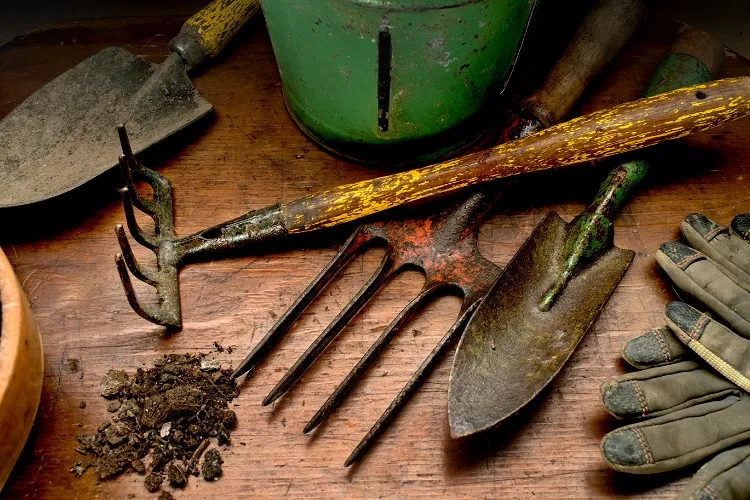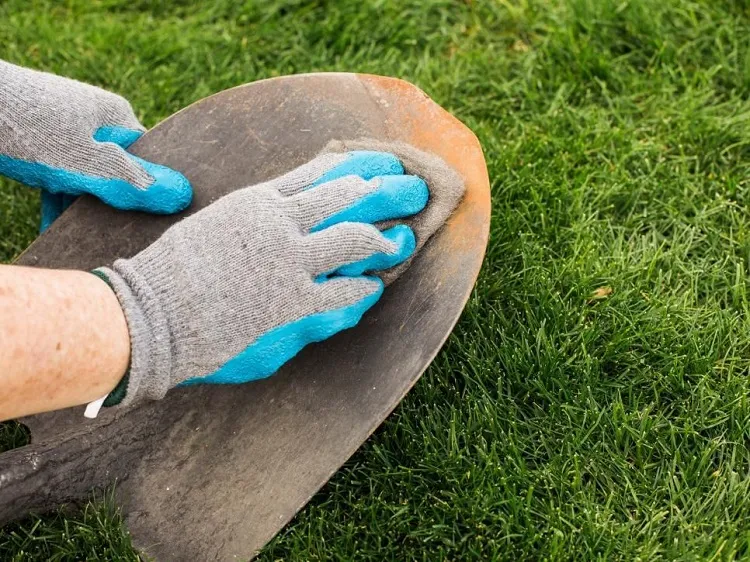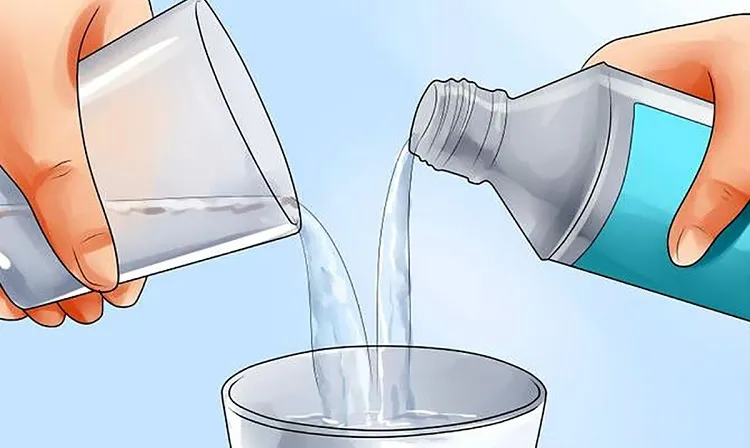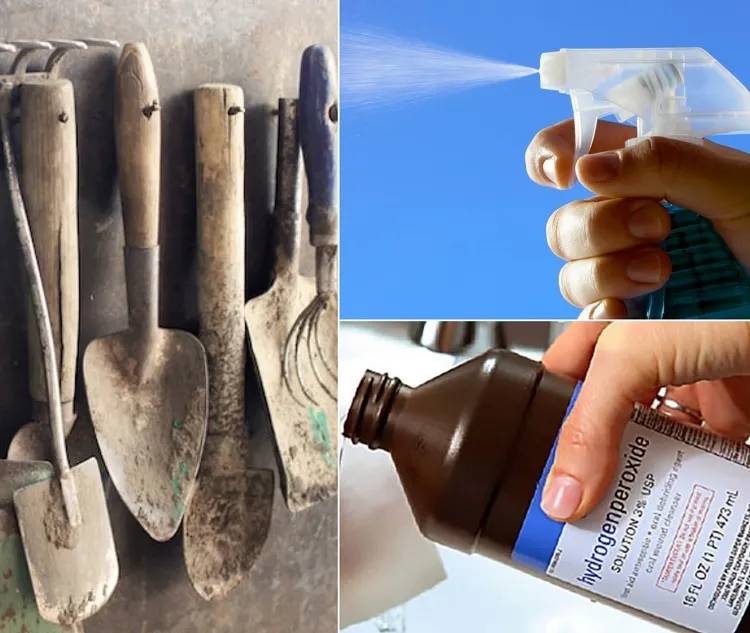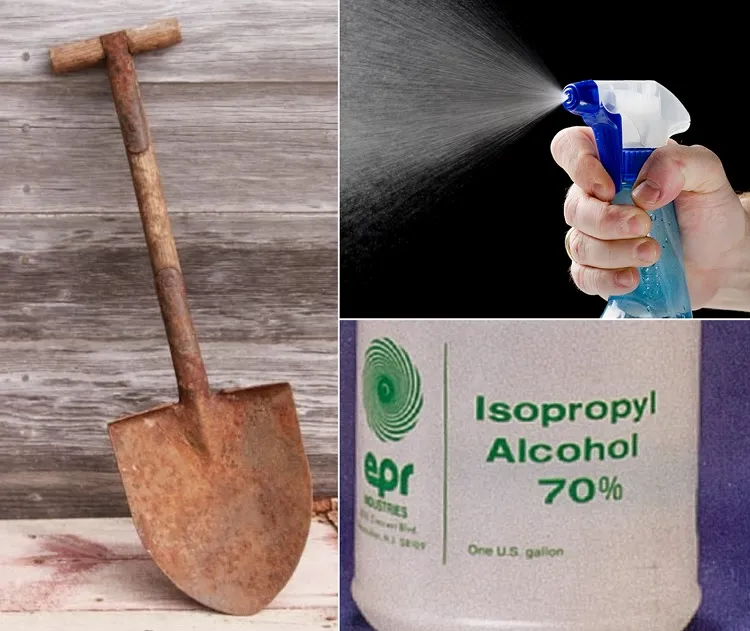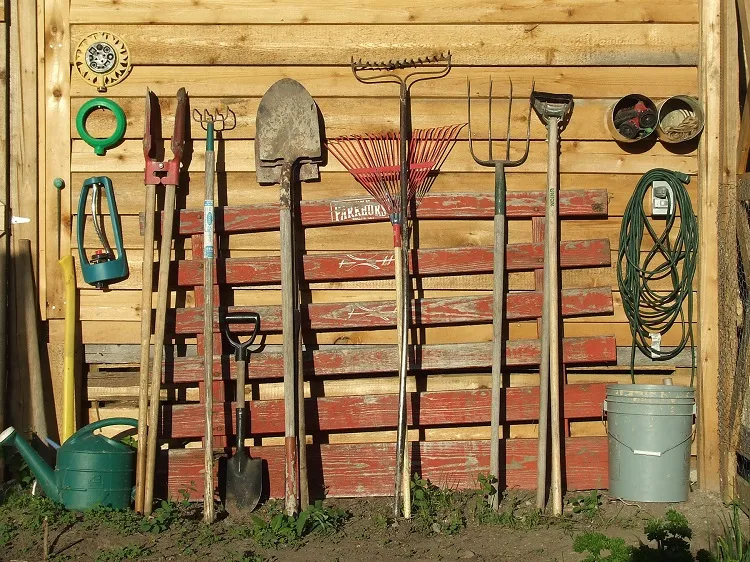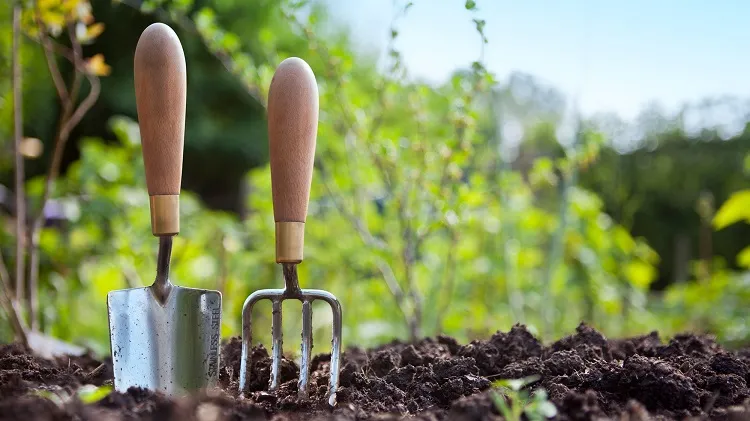Cleaning garden tools is an essential aspect of gardening that should not be overlooked. This approach not only helps extend the lifespan of your instruments for treating the soil and the plants, but also prevents the spread of diseases and pests. Maintaining a clean set of tools when working with them is important for your plants’ health and productivity of your garden. Make it a habit to practice good hygiene, along with regular maintenance and storage of your instruments. With clean tools in hand, you’ll be ready to tackle your gardening tasks with pleasure, and help to have a thriving and disease-resistant green area.
What Can I Use to Clean My Garden Tools?
The good news is that cleaning garden tools is simple and can be done in a short time, using common household items and natural substances. Look through the suggested few methods:
- Mix warm water with dish soap. It is one of the most effective and readily available option for cleaning garden tools. Fill a basin or a bucket with warm water and add there a few drops of dish soap. Use a scrub brush or sponge to remove any dirt, debris, or plant residues from the tools. Rinse thoroughly with clean water and dry the tools with a towel to prevent rusting.
- Make a vinegar and water solution. This mixture can work wonders for tougher stains or stubborn grime. Mix equal parts of white vinegar and water in a container and soak the tools for a few minutes. The prepared acidic solution will break down mineral deposits and remove rust. Scrub the tools gently with a brush or a sponge, rinse well, and dry them completely.
- Pour one part hydrogen peroxide into two parts of water. This natural solution will act effectively in cleaning garden tools. Replace the peroxide-water solution into a spraying bottle. Spray it on the tools’ surface and let the mixture sit for a few minutes. This action will kill any bacteria or fungi. Finally, wipe off the solution with a clean cloth, rinse, and dry the tools thoroughly.
How Do You Disinfect Garden Tools Without Bleach?
Bleach is not the most desirable option for cleaning garden tools due to its potentially harmful effects on plants, soil, and the environment. So, note the following suggestions for alternative methods to disinfect your tools:
- Spray isopropyl alcohol. This natural substance is known as a highly effective disinfectant. Fill a spraying bottle with isopropyl alcohol and spray it on the surfaces of your garden tools. Allow the alcohol to sit for a few minutes, and then wipe off the treated surfaces with a cloth or paper towel. Ensure that you wear protective gloves and work in a well-ventilated area while using isopropyl alcohol.
- Disinfect with a steam cleaner. The power of steam is an effective way to disinfect garden tools. Use a steam cleaner or a pot with a steamer attachment for a few minutes. The high temperature kills bacteria and fungi, ensuring that your tools are thoroughly disinfected. You should handle the hot tools with caution, wearing protective gloves.
Read also: How to disinfect your home properly to prevent coronavirus infection?
And: How to disinfect an iPhone? Check out the easiest way to clean your phone and AirPods!
How Do You Clean Garden Tools to Prevent Disease?
Applying proper cleaning techniques for your garden tools is essential for preventing the spread of diseases in the garden. Here are some important tips to consider:
- Clean garden tools after working with them: Make it a habit to clean your garden tools after each use to remove the traces of soil, plant residues, which may contain bacteria, fungi and other pathogens. This simple practice makes a lot in preventing the spread of diseases.
- Oil and sharpen your shears and loppers: These cutting tools should be treated regularly with oil, as well as sharpened. This is needed to ensure efficient cutting, but also helps prevent the transmission of diseases by reducing tissue damages on plants.
- Disinfect tools in some cases: When working with diseased plants or moving from one area of the garden to another, disinfect your tools using one of the methods mentioned above. This will help prevent cross-contamination and the spread of diseases.
- Store tools carefully: After cleaning and drying your garden tools, store them in a dry and well-ventilated area. Hanging or placing them in a tool rack will prevent moisture buildup and reduce the risk of appearing rust or corrosion.
- Inspect tools regularly: Take the time to inspect your garden tools for any signs of damage, such as loose handles, bent tines, or rust. Repair or replace damaged instruments to ensure their effectiveness and longevity.
By following these practices and regular cleaning routines, you can ensure that your garden tools remain clean, disinfected, and disease-free.

